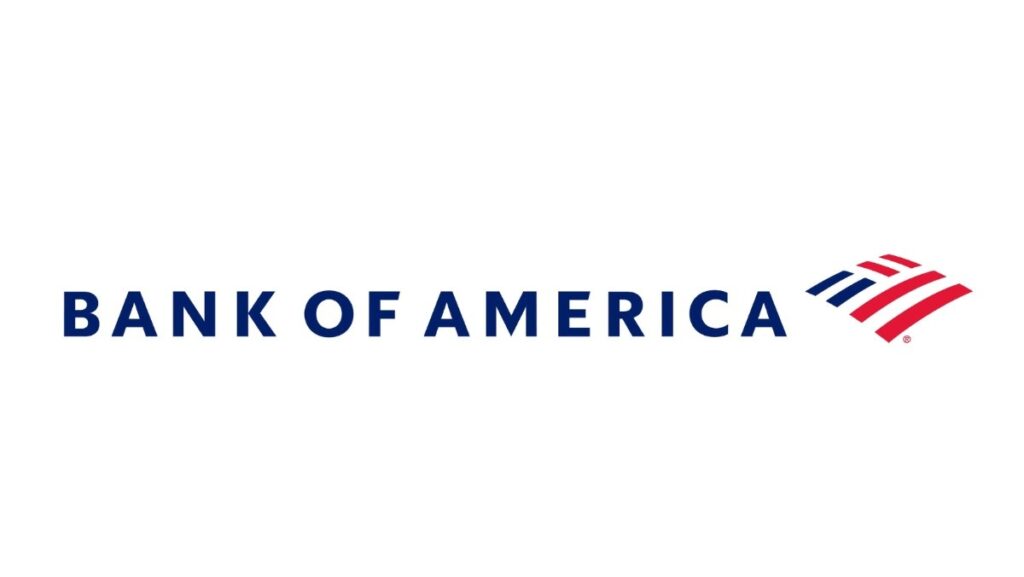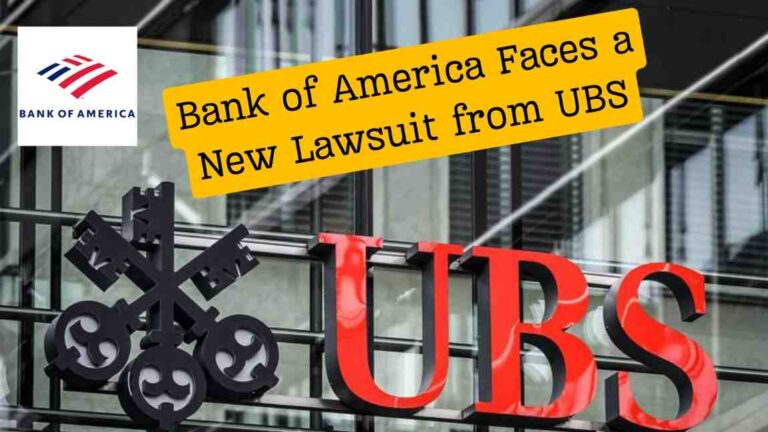The surprise news in the new world of finance is that the Swiss banking giant UBS has filed a lawsuit against Bank of America (BoA). The fight has rocked the industry and centres on accusations of wrongdoing involving some financial transactions and financial practices.
Bank of America, one of the most famous names in global banking, is a party to this lawsuit and therefore risk management, its corporate responsibility and its impact on banks’ reputations is also at stake.
In this article Bank of America Faces a New Lawsuit from UBS, we’ll break down the key elements of this lawsuit, why it matters, and what could be at stake for both financial institutions.
What is the Lawsuit About?

UBS filed the suit in a U.S. District Court, accusing Bank of America of committing fraudulent practices on a series of structured finance deals properly arranged and carried out in the aftermath of the 2008 financial crisis.
UBS specifically alleges that the quality of mortgage-backed securities (MBS) and related financial instruments that it and its clients bought from BoA were misrepresented by BoA.
The central claim is that Bank of America did not adequately reveal to shareholders the perils of these securities, with special emphasis placed on subprime mortgages.
This proved very profitable for Bank of America,’ UBS wrote, ‘and very unprofitable for UBS,’ when the market for these securities imploded during the subsequent finacial turbulence.
UBS’s legal team says Bank of America should be held responsible for the damages related to these allegedly deceitful transactions. The Swiss bank seeks compensatory damages for losses resulting from what it says was a breach of contract and fraudulent inducement.
The Backstory: Mortgage-Backed Securities and the 2008 Financial Crisis
We need to go back to the surroundings of the 2008 global financial crisis to understand the gravity of the lawsuit. While shares of both Bank of America and UBS fell hard after the crash, banks both large and small around the world built up holdings of mortgage-backed securities (MBS), which are complicated securities backed by home loans. The bundling and selling of these securities often resulted in the formation of a market for mortgages, both prime and subprime.
As this housing market started to collapse in 2007, the value of these mortgage-backed securities disappeared, providing a glimpse into how big a risk these financial instruments were. Bank of America, UBS, and many other institutions that had invested heavily in MBS could all be said to have had to take massive losses.
Several banks were also accused of wrongfully packaging and reselling these securities without fully disclosing the underlying risks, and Bank of America was just one example. The claims have already faced fierce legal challenges, including the bank settling billions of dollars in payouts with the U.S. Department of Justice and other stakeholders.
Like UBS, too, the bank has been entangled in other litigation over its role in the financial crisis, making this the latest in a long and convoluted legal history.
What UBS Is Alleging in the Lawsuit

According to UBS’s lawsuit, Bank of America structured finance deals that it said contained misleading mortgage-backed securities that caused the Swiss bank a lot of financial losses. The legal filing details several key allegations:
- Fraudulent Misrepresentation: UBS claims that Bank of America made false statements regarding the quality of the mentioned securities, including omission of risks tied to the referred assets.
- Failure to Fulfill Contractual Obligations: The claim against Bank of America is that the bank has violated contractual duties mainly indemnification clauses. UBS says that BoA agreed to indemnify the bank for any losses incurred in the future as a result of botched securities transactions but backed out of the deal.
- Lack of Due Diligence: UBS said Bank of America made no proper assessment of the securities’ quality, which would have shown the risks of default and losses associated with the mortgages underpinning the securities.
- Damage to UBS’s Reputation: Other than money, UBS argues that Bank of America’s actions have caused it irreparable harm, and significantly damaged its reputation, particularly among the investors it misled to buy the toxic securities.
The Potential Impact on Bank of America

This lawsuit is among the many legal complaints that Bank of America has received in the post-2008 financial crisis. Although the bank has settled hundreds of other cases that also involved mortgage-backed securities and other toxic products, the civil suit that UBS filed could be disastrous for them, both in terms of money and image if the case is taken to court.
- Financial Impact: If the lawsuit headed to the court then Bank of America may have to pay a hefty amount in damages. UBS is asking for compensatory damages, which could be in the billions of dollars. This can further challenge the resources of BoA particularly when other legal proceedings are ongoing at the same time.
- Reputational Damage: If Bank of America wins the suit, it still suffers from the fact that it has been connected to a lawsuit from one of the biggest banks in the world, UBS. The banking industry is based on trust, and the crisis of trust could lead to a loss of investors’ confidence and customers’ loyalty.
- Regulatory Scrutiny: The lawsuit could result in more scrutiny of the bank from regulators should the court rule that Bank of America was being deceptive. Other authorities such as the SEC or the Federal Reserve can fine or suspend the bank, adding more problems to BoA’s legal and financial status.
What’s Next in the Case?
At the moment the case is still relatively new, and it is uncertain whether the case will be taken to court or if it will be settled.

However, since both Bank of America and UBS are in the spotlight, this lawsuit will be of great interest to finance analysts and society. The result may have significant consequences for both organizations and the financial sector as a whole.
If the case is to go to court, then it is likely to bring into the public domain more information about the sale and marketing of financial products as well as the recklessness of major financial institutions in the post 2008 crisis era. Each of the banks is likely to provide a robust defence, and the case might just turn out to be a precedent in the sphere of banking legal practice.
Conclusion
The latest filing of its kind from Bank of America to UBS is just the latest chapter in the ongoing fallout from the 2008 financial crisis. It will be essential to watch how both banks manage this contentious issue, as the legal battle plays out going forward.
The lawsuit UBS filed against Bank of America is a long overdue effort to hold the bank accountable for alleged misconduct during a rocky stretch in financial history, bank attorneys said.
This lawsuit piles onto an already wide list of lawsuits and risk of further reputational damage for Bank of America. And as the case unfolds this will be a close watch in the financial world to see how it will influence the future of corporate responsibility and disclosure in the banking space.
Learn more articles on Techwitter.com
